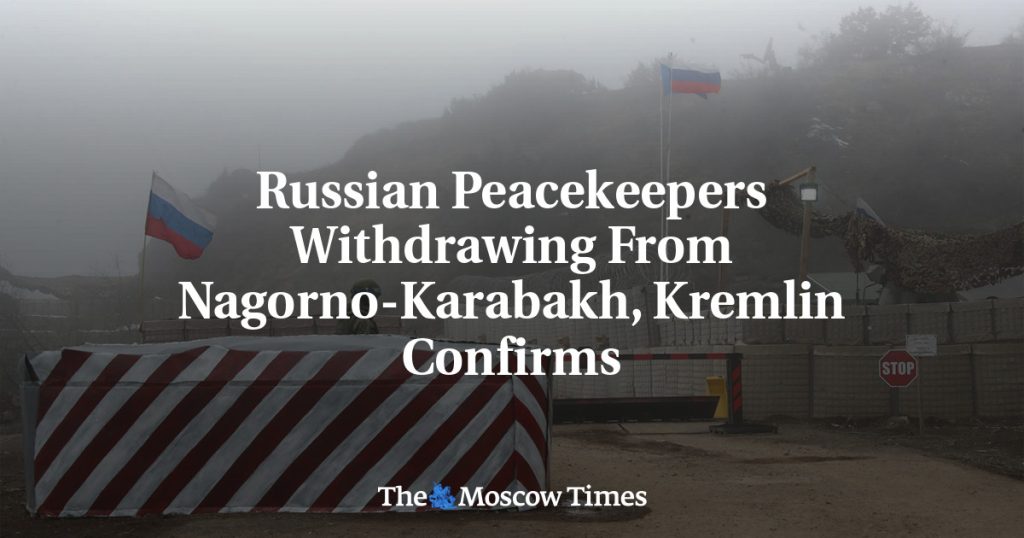The Kremlin has confirmed reports that Russian peacekeepers have begun withdrawing from Nagorno-Karabakh following the region’s seizure by Azerbaijani forces last year. Dmitry Peskov, a spokesperson for the Kremlin, confirmed the reports after footage on social media showed Russian-flagged military vehicles leaving the North Caucasus region. In November 2020, Russia deployed around 2,000 military personnel and 90 armored personnel carriers to Nagorno-Karabakh as part of a Moscow-brokered deal to end fighting between Armenia and Azerbaijan.
The role of Russian peacekeepers in the region came under scrutiny as they did not intervene when Azerbaijan completed its takeover of Nagorno-Karabakh within a day in September 2023. The offensive led to a refugee crisis, with nearly the entire population of 100,000 ethnic Armenians fleeing to Armenia. Nagorno-Karabakh, internationally recognized as part of Azerbaijan, had been controlled by pro-Yerevan separatists with a majority Armenian population for almost thirty years. The conflict has strained relations between Russia and Armenia, with the former maintaining warm ties with Azerbaijan as the two countries try to negotiate a broader peace agreement.
Armenian Prime Minister Nikol Pashinyan has expressed disappointment with Russia for not supporting his country in the face of what he describes as Azerbaijani aggression. Pashinyan recently announced that Yerevan had effectively suspended its participation in the Collective Security Treaty Organization (CSTO), a defense alliance led by Moscow. The ongoing tensions in the region highlight the complex dynamics between Armenia, Russia, and Azerbaijan as they navigate efforts to reach a peace agreement that could potentially involve Baku gaining control of more disputed territories.
As the Russian peacekeepers begin to withdraw from Nagorno-Karabakh, the region faces an uncertain future amid ongoing negotiations between Armenia and Azerbaijan. The swift takeover of the region by Azerbaijani forces and the subsequent refugee crisis have highlighted the deep-rooted tensions and territorial disputes in the South Caucasus. The conflict has not only strained relations between traditional allies Russia and Armenia but has also raised concerns about the role of external actors in the region’s security dynamics. The withdrawal of Russian peacekeepers signals a shifting power dynamic that may have far-reaching consequences for the region’s stability.
The situation in Nagorno-Karabakh remains fragile as Armenia, Azerbaijan, and Russia navigate the complexities of reaching a lasting peace agreement. The withdrawal of Russian peacekeepers from the region raises questions about the future security arrangements and the potential for renewed hostilities between the two former Soviet republics. The refugee crisis and the territorial disputes underscore the need for a comprehensive diplomatic solution that addresses the concerns of all parties involved. As negotiations continue, the international community will be closely watching developments in the South Caucasus region, hoping for a peaceful resolution to the long-standing conflicts that have destabilized the region for decades.


